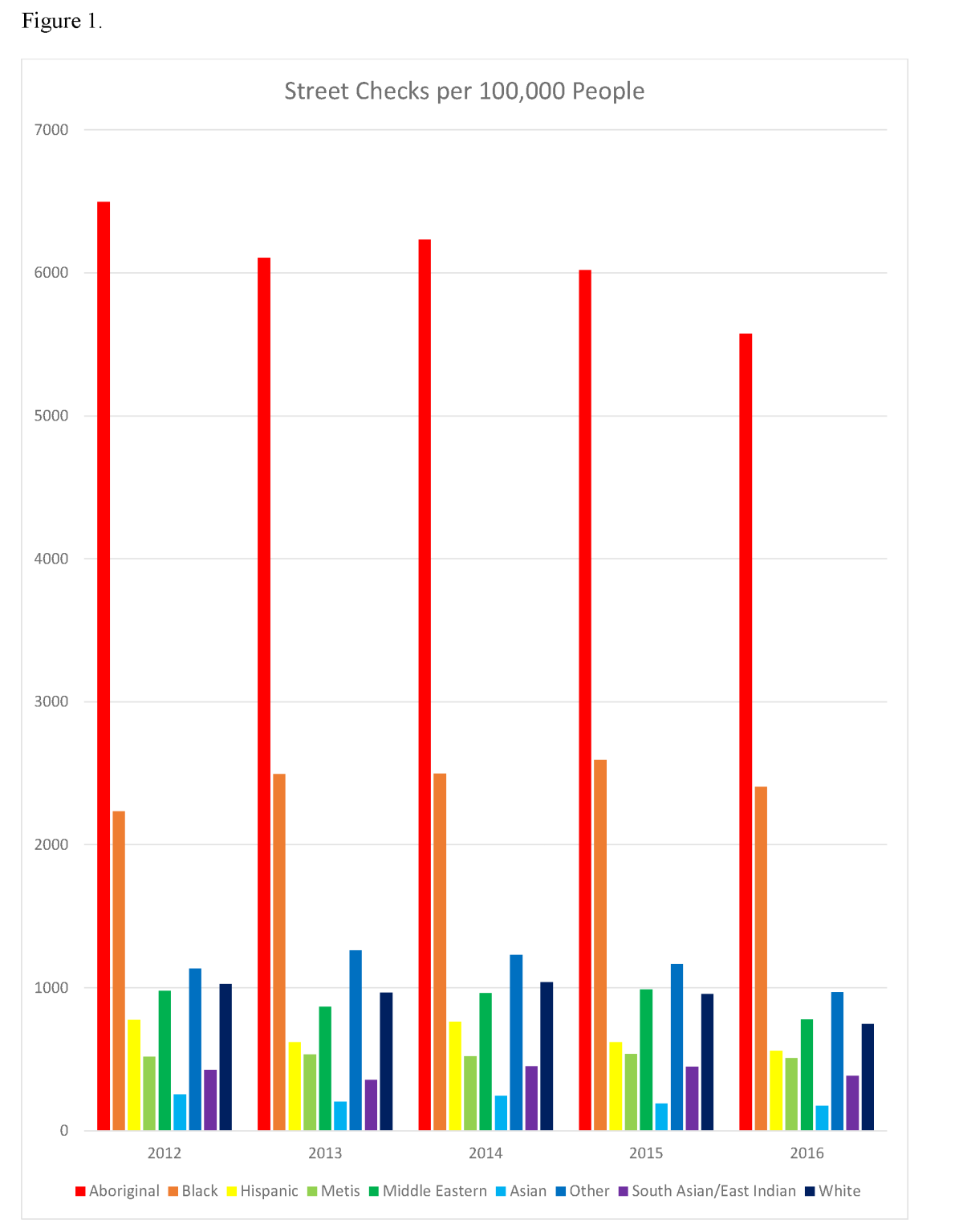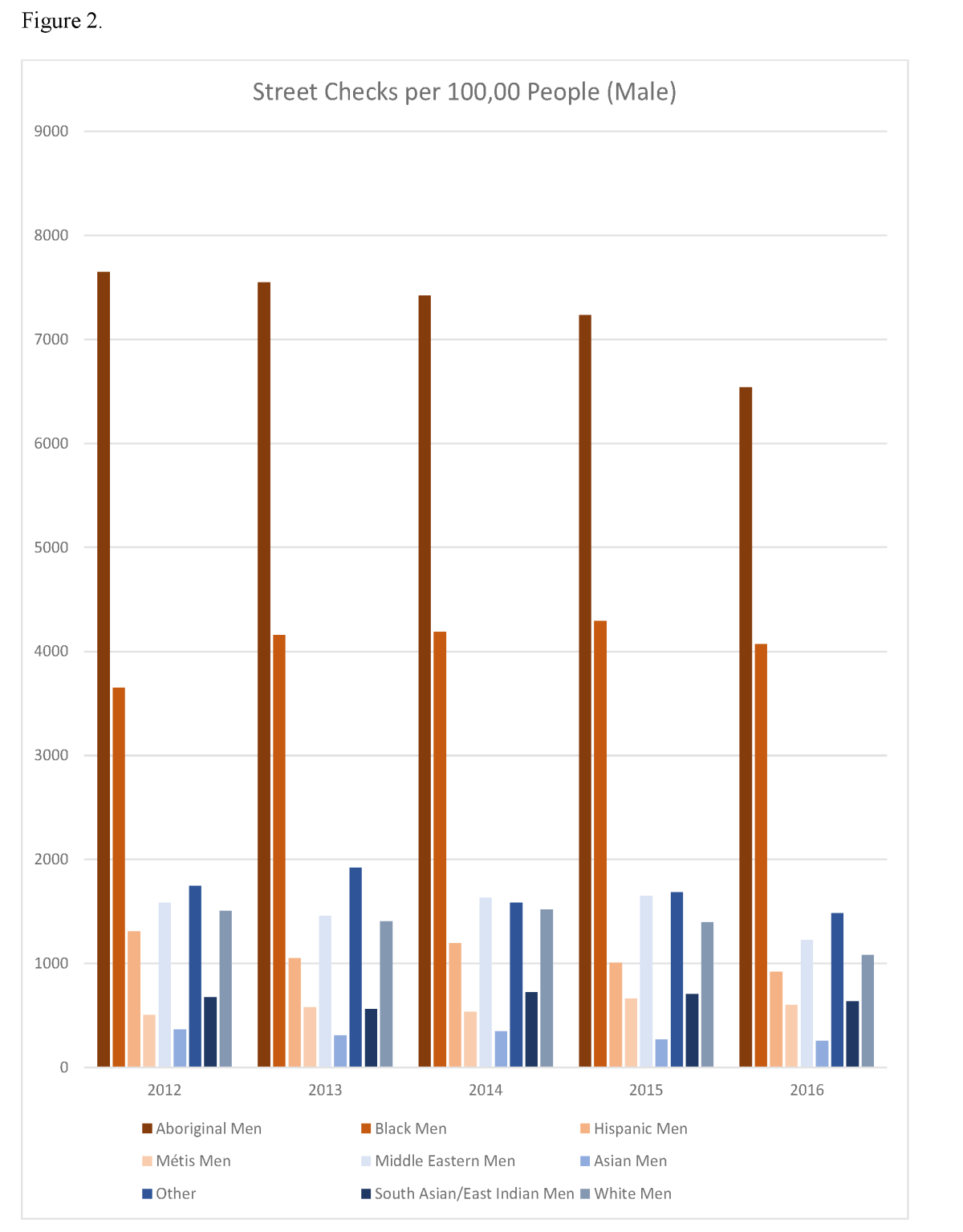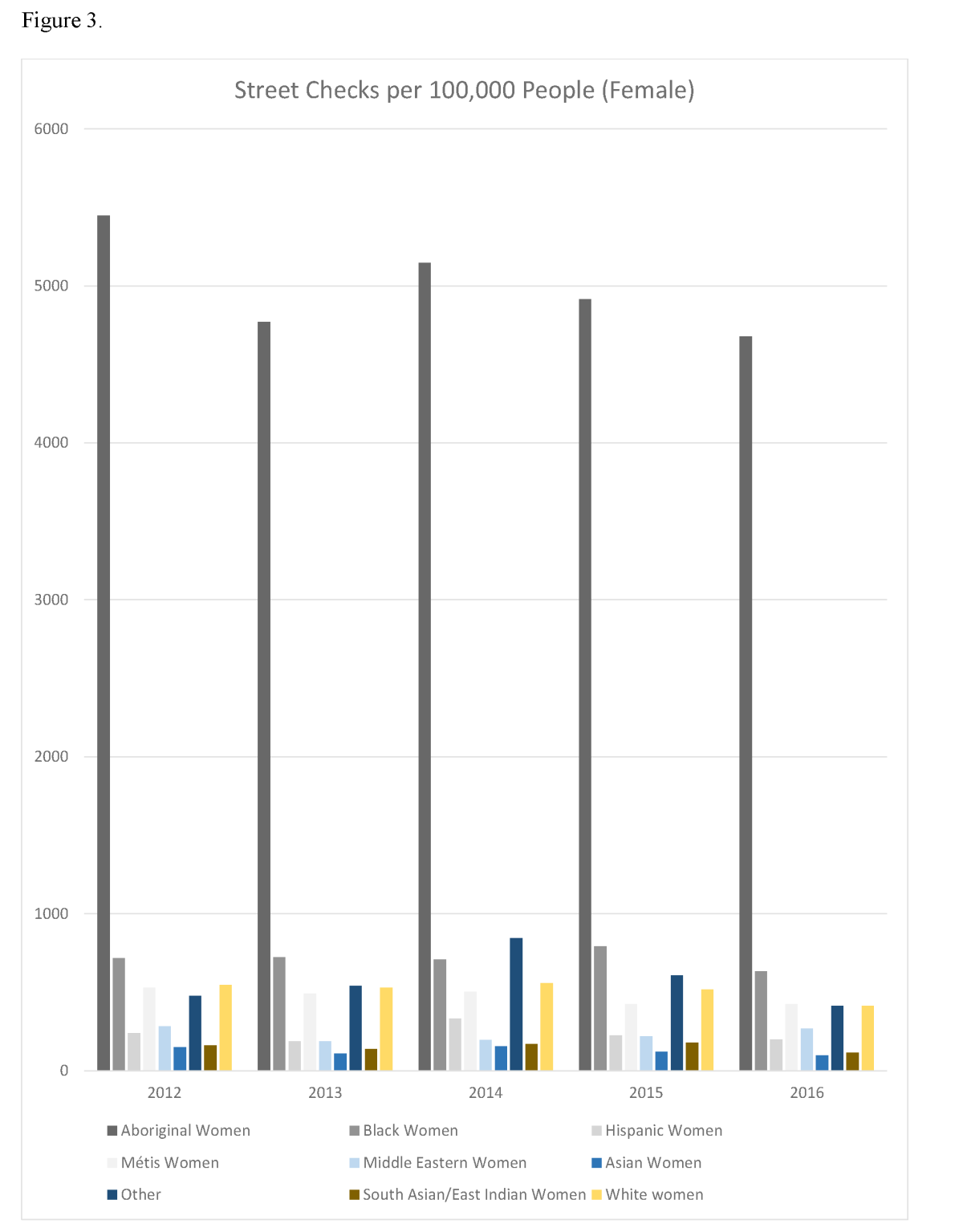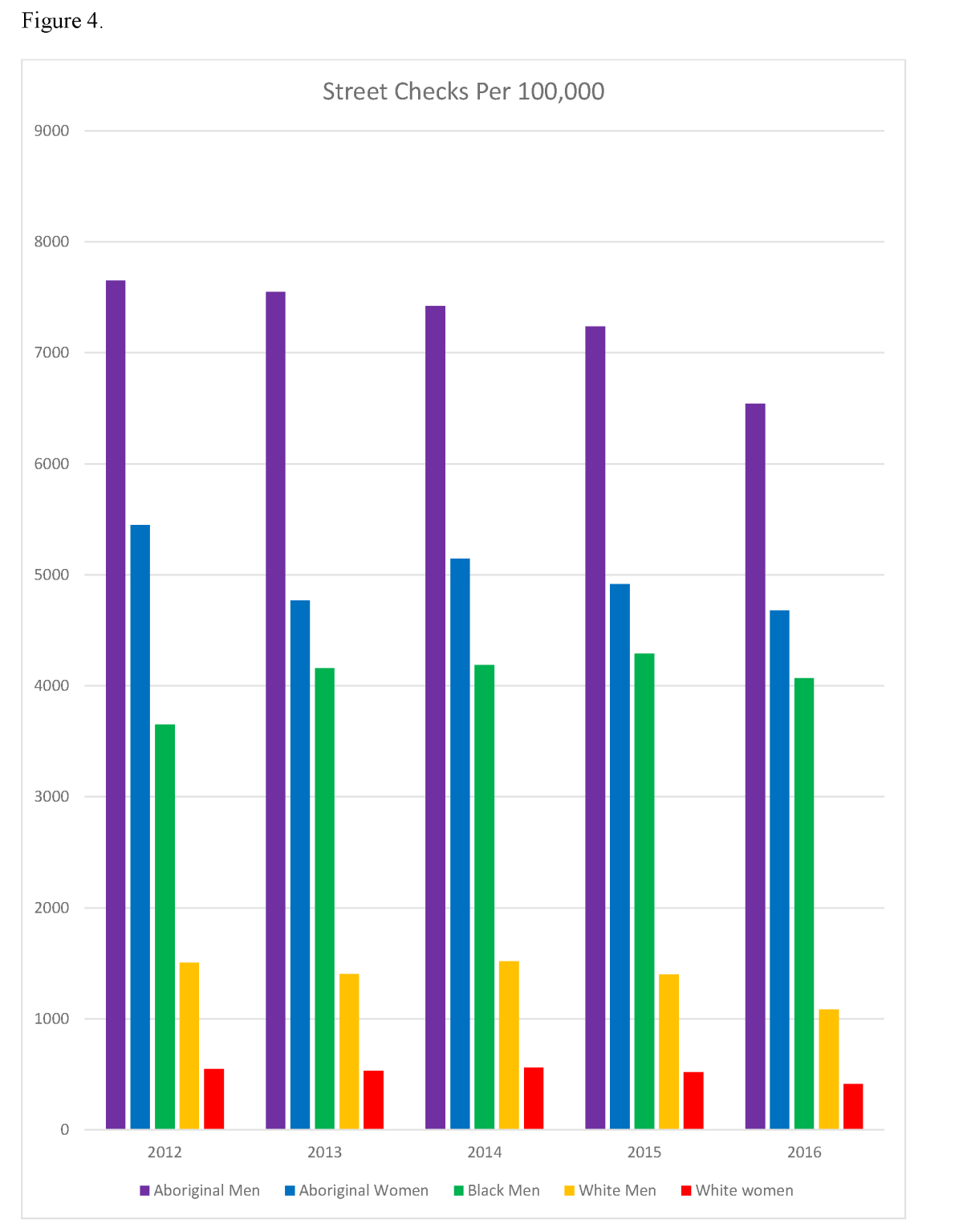Edmonton police have been disproportionately questioning and documenting Aboriginal and black people in non-criminal encounters, according to an advocacy group that analyzed several years’ worth of Edmonton Police Service (EPS) data.

The practice of street checks, also called “carding,” involves police stopping and collecting information from people who are not suspected of committing a crime. The person is not required to provide any information and may leave at any time.
READ MORE: Edmonton police continuing controversial street check practice
Earlier this year, Black Lives Matter Edmonton filed a freedom of information request on all street-check data held by Edmonton police and received information from 2012 to 2016.
As a result of the data obtained by that request, Black Lives Matter is calling on the province to ban the practice of police checks by January 1, 2018.
The group worked with lawyers and academics to analyze the data, and came to the following conclusions:
- Aboriginal Edmontonians are four times likely to be street-checked than white people
- Aboriginal women face the highest rates of carding at 6.5 times the rate that of white women
- Black people in Edmonton are 3.6 times more likely to be street-checked than white people
(Scroll to the bottom to see charts.)
“This data clearly shows that street checks are a form of systemic discrimination which unfairly targets ordinary citizens,” Bashir Mohamd of Black Lives Matter Edmonton said. The organization is calling for carding to be banned and all collected data be destroyed.
Police defend the practice as important for gathering street-level intelligence, community engagement and the prevention of crime.
WATCH: Global National’s Reid Fiest reports on the calls for the checks to be banned in Alberta

“We’ve tried, and I think in a lot ways we’ve succeeded in trying to become responsible in how we’re obtaining the data,” said Staff Sergeant Warren Driechel with the EPS Intelligence Branch.
He added the street checks are not mandatory and officers are told what is and isn’t appropriate.
“That includes intensive training for all members, advising them what street checks are – what the charter says.”
Edmonton police said they audit their “street check” reports twice a year and more beat officers downtown have led to more interactions with officers.
Driechel said there are 64 beat officers alone in downtown Edmonton and estimated they do twice as many street checks than officers in other areas of the city.
- Gas station clerk stabbed several times during violent attack at Ultramar in Montreal
- Canada’s most wanted list: Toronto suspect in fatal shooting at No. 1
- Man acquitted in Tina Fontaine murder found dead, says her aunt
- Canadians should expect politicians to support right to bail, Virani’s office says
“Really creating that understanding that this isn’t a random stop, that we’re not just randomly arbitrarily stopping people – that we’re doing it in those areas we’ve identified to have issues with crime, disorder, where there’s the public expectation that the police will be out there trying to be proactive around those events.”
“We believe carding does not build relationships,” said Rachelle Venne, executive director of the Institute for the Advancement of Aboriginal Women, which works to improve opportunities for Aboriginal women.
“Rather the contrary, it reinforces the attitude that Aboriginal women are not ‘worthy’ of the human rights that most Canadians enjoy.”
Numbers vs. percentages
The number of individual Aboriginal and black people carded was actually lower than the number of Caucasian people, who made up over 56 per cent of those street-checked last year.
The analysis looked at how often people of different ethnicities were carded in comparison to their respective population, as per the 2011 Statistics Canada census.
Aboriginal people accounted for just over five per cent of Edmonton’s population in the 2011 census — the most recent year for available data — but in 2016 accounted for 21.6 per cent of people (with one distinct race) who were carded.
About 11 per cent of those carded were black, despite being a smaller proportion of the population.
An analysis of the data said the accuracy of the findings is complicated by the low rate of those street-checked who were identified by race. Between 2012 and 2016, an average of only 39 per cent of people who were street-checked were identified by race.
Police explain street checks
Edmonton police said this is because the street check forms do not collect racial information, and 23 per cent of all street-check reports contain no race information whatsoever. Police said the street-check forms are automatically linked to other police reports that may contain information about a person’s race.
Police said in practical terms, that means 77 per cent of those stopped had previous contact with police and had racial information on file.
In 2016, 22,969 street checks were carried out involving 20,689 people. Police said that was down by 15 percentage points from the previous year, adding they have reviewed their practices and tightened the parameters in which officers are allowed to perform street checks.
Edmonton police said the data doesn’t explain why certain individuals were stopped and therefore, people shouldn’t jump to conclusions. Edmonton police previously said the practice is based on criminal profiling, not racial profiling.
WATCH: Fletcher Kent filed this report in 2015, when police said they will continue the controversial practice of “street checks” because they said, in Edmonton, it’s not that controversial.
Police said 23 per cent of all street checks happened in the downtown area due to the higher numbers of beat officers there.
“Small geographic areas tend to be culturally aligned, therefore with those areas having more beat members we tend to have a significant more numbers of certain groups than others,” said an EPS statement.
Justice minister weighs in
Alberta’s justice minister said all Albertans deserve to feel safe and respected in their communities.
“Under Alberta’s policing standards police agencies are required to provide impartial policing without regard to ethnicity, gender, sexual orientation, age, belief or social standing,” Kathleen Ganley said in a statement.
Alberta Justice said it formed a working group made up of representatives from Alberta’s police services and Alberta Justice and Solicitor General to start work on the issue of carding. The group was formed in February 2016, and Justice said the next step is to consult with community members.
“We are finalizing a consultation plan and will be launching community consultations in the near future. We look forward to hearing from Albertans, community groups and police agencies,” Ganley said.












Comments